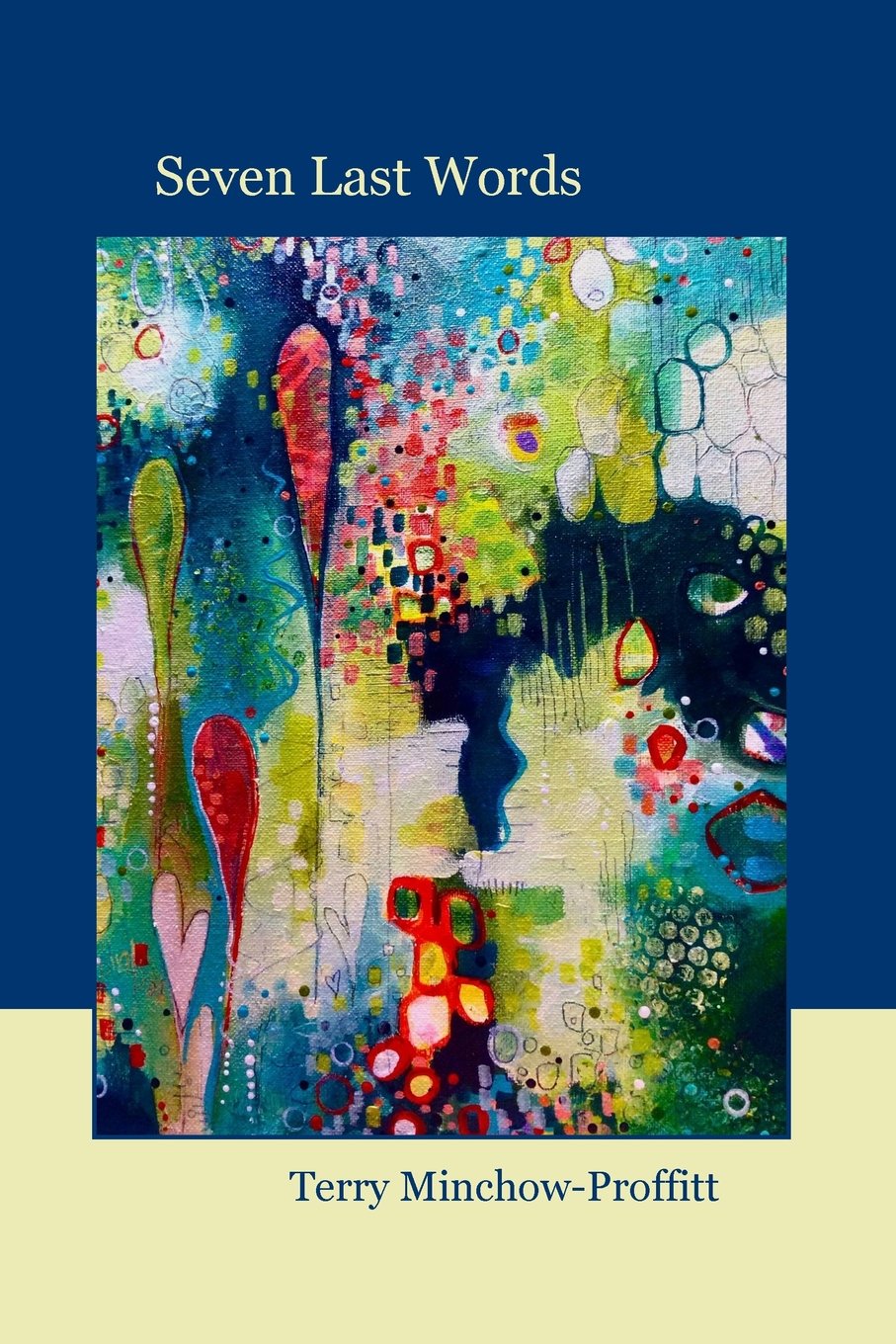I'm not sure if all that means that I am likely to not tell the truth about the book, though. I mean . . . I published the poems! I blurbed the book! I am SO EXCITED about this work!
I really like poetry that takes up religious themes (I should, given my current editing position . . .), but I am damn picky about my religious poetry. I don't like abstractions. I don't like schmaltz (well, I like schmaltz, but not in this context). I don't like thinly veiled theological polemics. I don't like trite answers.
This poetry is none of those things. Rather, it presents a cycle of seven poems, each of which meditates on one of the Seven Last Words of Christ as he died. These may be found here, where they were first published at MSR. (Go ahead and read the poems there, but don't hesitate to buy the chapbook too if you like them, as it includes extra material, like an extended author interview, a forward, and an afterward. Also the artwork is bound up with them, which is great!)
These are not abstract poems. If you're familiar at all with Ignation contemplation, several of the poems are very much in that vein, especially my favorite, the third, inspired by "Woman, behold thy son! . . . Behold thy mother!" (John 19:26-27 is one of my favorite moments in the Gospels; Mary is crying at the foot of the cross, and Jesus tells his best friend [John, often described as 'the disciple Jesus loved'] to look after her.)
Other poems take one of the poet's own life experiences and explore the connection to the verse, such as one of my other favorites, inspired by "Father, forgive them; for they do not know what they are doing." This one unpacks a moment in a hospital room. (The combination of theology, medicine, and poetry is like catnip for me.) It is full of carefully selected, quotidian details that make the imagery particularly vivid (I loved the "pester of beeps" described.)
Anyway. I'd recommend these certainly NOT only for the religious among us (otherwise MSR never would have published them.) They're accessible and compelling to anyone who is interested in poetry based off of other poetry, or the Bible as literature, or poetry about personal beliefs, or, you know, just good poetry.
I'm gonna wrap up with this snippet from Terry's author interview. Emphasis added for awesome factor.
Q: How do you hope someone who doesn’t believe in God might approach these poems?
A: I want to respect the integrity of my readers, but I don’t usually think of them in terms of believers and non-believers. It’s my experience that belief and unbelief, whether in God or humanity, wrestle in all our hearts. So my hope for those who don’t believe in God is pretty much the same hope I hold for those who do believe in God: I long for these poems to foster an abiding sense of love, even amidst inexplicable suffering and loss. That’s about it; the litmus test is love.
Isn't it just.


No comments:
Post a Comment